
|
Date: |
Monday, November 6 |
|
Time: |
Discussion - 9:30 a.m. to 10 a.m. |
|
Place: |
UNM Domenici North |
|
Refreshments: |
scones, fruit, coffee and water from The Daily Grind |
UNM prioritizes research that takes account of critical issues of importance to the community and as such promotes community engagement. This panel discussion may be used:
(1) to instruct researchers on how to structure community-academic partnerships that are of greater benefit to community groups while centering equity and social justice; and
(2) to aide community groups in assessing and formulating research studies that benefit their community.
This virtual panel discussion with harm reduction advocates examines community-academic research partnerships by investigating issues around power imbalances between the researcher and the researched cognitive social justice, and inequitable participatory burdens. In the end, the panel recommends promising practices that address research and academic practices, systems, and rules that can be changed to result in the equitable distribution of power and prioritize the voices and lived experiences of community groups such as harm reduction advocates and people who use drugs (PWUDs).
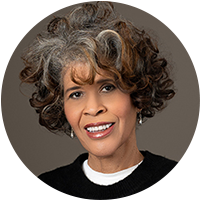
Lauri Andress, PhD, JD, MPH
Moderator
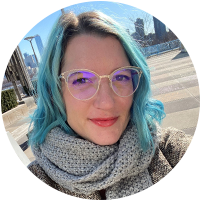
Mariah Grant
Harm Reduction Advocate
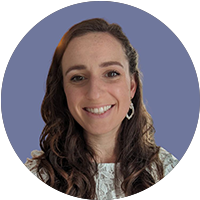
Katie Evans
Harm Reduction Advocate
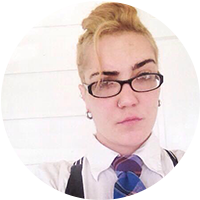
Morgan Farrington
Harm Reduction Advocate
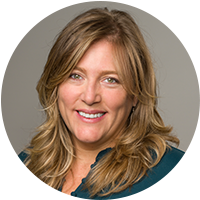
Emily Kaltenbach
Harm Reduction Advocate
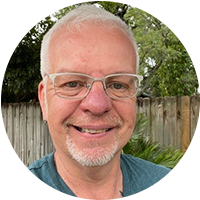
Tim Santamour
Harm Reduction Advocate
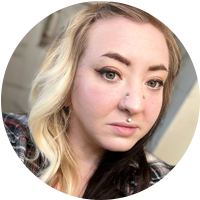
Ashley Charzuk
Harm Reduction Advocate
Researcher and Panel Moderator
During her studies, Dr. Andress secured a Master of Public Health and Ph.D. in Community Health Science (University of Texas Health Sciences Center, major in health policy; concentration in Management and Policy Sciences), and a law degree from South Texas College of Law, Houston, Texas. Connected to broader interests in the achievement of equity through structural and policy change, predicated on the social determinants of health (SDOH) and community engagement, Dr. Andress’ career has provided equity-oriented leadership, scholarship, and instruction in public health settings, community-driven initiatives, schools of medicine, and government and political settings. An important guiding vision for Dr. Andress is to shift the way that society thinks about and conceptualizes notions of good and poor health, making room for the prioritization of equity, mutual respect, and social justice.
Dr. Andress’ early career was spent working in public health governance and political settings. She led teams that launched the Centers for Health Equity in Wisconsin and Louisville, Kentucky. Through her experiences, she developed skills in strategic communication serving as Public Information Officer and Chief of Public Affairs in Houston’s Department of Health and Human Services. Later she assumed the position of Policy aide and Communications Officer in Washington D. C. for the 18th Congressional District of Texas. While completing her doctorate Dr. Andress worked for one of the leading U.S. experts on population health, Dr. Alvin Tarlov, at the Texas Program for Society and Health at the Baker Institute for Public Policy, Rice University. As the Director of Operations and Strategic Political Action, her work focused on research, policy advocacy, and message framing around the social determinants of health with an emphasis on health equity from an international perspective - largely the United Kingdom and Canada.
Dr. Andress’ academic career was shaped by experiences in West Virginia within the School of Public Health at West Virginia University (WVU) where she served as the Assistant Dean for Public Health Practice and Workforce Development and a tenure track Assistant Professor in the Department of Health Policy, Management and Leadership. A major outcome of her time at WVU was research that grappled with how we measure the population health of underrepresented (UR), marginalized, and oppressed groups. Today her scholarship illustrates a qualitative public health assessment on the connection between place and health, portraying the lived experiences of UR groups as told by and through their stories, photos, narratives, and video recordings. This has resulted in a website on the intersection of place and health examining infant mortality disparities and inequities in food security, transportation, and the built environment at placeandhealthwv.com
More recently, before joining UNM, Dr. Andress served as Associate Dean for Inclusion, Diversity, and Community Engagement and Associate Professor in the Department of Medical Education at Geisinger Commonwealth School of Medicine (GCSOM), She also took a sabbatical during which she studied community-engaged research and harm reduction and assisted groups in Alabama in linking legal services to structural and institutional issues that contravene better population health.
Community Harm Reduction Advocate and Service Provider
Katie Evans (she/her) has been working to improve community health outcomes in Baltimore for the past 10 years, with 6 of those years as a licensed social worker. In the earlier stages of her career, Katie worked as a case manager and then as a mental health clinician, specializing in serving people experiencing homelessness and those seeking treatment for substance use. In 2019, she transitioned from providing individual care to harm reduction program management, running a nighttime mobile outreach program, aimed to support street-based sex workers. In addition to overseeing the implementation of the Syringe Service Program, Overdose Education Program, and volunteer program; she launched a mobile delivery service in April 2020, which grew the program's reach from 250 encounters per month to over 1,200 encounters per month. The delivery program started with the distribution of individualized harm reduction supplies for safer sex and safer drug use and quickly grew to include the delivery of home and street-based healthcare services with Nurse Practitioners, including reproductive health care, wound care, and Buprenorphine maintenance. She is most proud of how she was able to guide and support the team through numerous challenges and changes from COVID and beyond, and how that team has been able to care for our Southwest Baltimore community. She is now utilizing those learning experiences to support other individuals and organizations through change and exploration, under the consulting business, Grey Matters.
Community Harm Reduction Advocate and Service Provider
Morgan is a courageous harm reductionist in Northeast Alabama where they have spent the last three and a half years running underground programs in their hometown. With a rich background in issues around harm reduction and PWUDs, Morgan brings lived experience and a great amount of knowledge from the study of 5 and counting different fields that examine ways of knowing U.S. society, culture, history and social processes.
Community Harm Reduction Advocate and Service Provider
Mariah Grant (she/her) is a human rights and migration expert with a focus on sex workers’ rights, freedom of movement, and labor exploitation. For over a decade, she has worked throughout North America, Europe, North Africa and the Middle East, and Asia Pacific, in a variety of capacities including case management with migrant children and families, training and technical assistance for governmental and intergovernmental agencies, human rights research and documentation, and policy advocacy. She is currently a freelance consultant working on projects related to sex work decriminalization, sex work in humanitarian crises and conflict zones, and human trafficking prevention and service provision for survivors. Prior to consulting, she was the Director of Research and Advocacy with the Sex Workers Project of the Urban Justice Center where she oversaw research on the harms of sex work criminalization, including police violence, as well as local, state, and federal policy advocacy to decriminalize and destigmatize sex work. She has consulted and worked with the Global Alliance Against Traffic in Women, UN Office of the High Commissioner on Human Rights, International Organizational for Migration, US Department of State, US Department of Labor, ICF International, Woodhull Freedom Foundation, Mahidol University’s Institute of Human Rights and Peace Studies, Decriminalize Sex Work, Freedom Network USA, New Moon Network, Protection International, Morrison Child and Family Service, Minority Rights Group International, and the Global Network of Sex Work Projects.
Senior Director of State Advocacy and Criminal Legal Reform
Emily Kaltenbach is the senior director of state advocacy and criminal legal reform in the Office of National Policy. In that role, she leads DPA's state advocacy efforts and efforts to decriminalize drugs and build health-based alternatives. Emily previously worked in DPA's New Mexico Policy Office where she was instrumental in passing marijuana legalization, reforming the state's asset forfeiture law, a model for the rest of the country, and helping start the second law enforcement assisted diversion program in the nation. Before joining DPA she worked in New Mexico implementing rural community-based health centers, helping reform the state's long-term care system, and setting the stage to implement federal health care reform in the state. Born and raised in rural New Mexico, she graduated from Beloit College with a BA in sociology and a minor in health care studies. She later completed a master's degree in health administration at the University of Washington's School of Public Health.
Director of Outreach and Networking, Florida Harm Reduction Collective
Tim Santamour (he/him) has over 30 years of experience in harm reduction. He is a co-founder of Prevention Point Buffalo (1991) the first Syringe Services Program in NY State outside of New York City. In 1994 he started working with the Lower East Side Needle Exchange Program and, later, Moving Equipment Queer Harm Reduction Collective. After serving as an advisor, Tim was appointed as Executive Director of DanceSafe, a harm reduction organization working in Rave and Electronic Dance Music communities, from 2001 to 2004. Over the years Tim has presented at several conferences on the intersections of substance use and gay identity, including Club Health in Rimini, Italy (2002), the Drug Policy Alliance’s Policy Conference in Albuquerque (2003), the National Harm Reduction Conference in Seattle, WA, and several North American Syringe Exchange Conventions. He was a member of the North American User’s Union and ACTUP. In 2016 he received a BA in Literature in English from City University of New York- Hunter College. Upon retirement from NY State in 2018, Tim moved to Saint Augustine, FL and founded St Augustine Harm Reduction Collective and, subsequently, was a co-founder of Florida Harm Reduction Collective (2019) where he now serves as Director of Outreach and Networking. He also serves on several advisory boards advocating for the inclusion of People Who Use Drugs in program and research design. Tim is a Subject Matter Expert on several issues related to LGBTQ+ communities and substance use, ChemSex, and Syringe Services Programs. He prides himself on the mentorship of folks newly arriving to harm reduction work and his position as an OG of the Harm Reduction and Needle Exchange movements.
Harm Reductionist and Peer Support Specialist
Ashley Charzuk is the Founder and Executive Director of New Mexico Harm Reduction Collaborative located in Albuquerque, NM. Ashley has previous experience in the areas of Peer Support, Comprehensive Community Support Services, HIV/HCV Testing Counseling, and rapid re-housing. Ashley prides herself on using her lived experience with substance use, poverty, and street life to advocate for people who use drugs. Ashley is currently a co-director of the Alcohol Use and Mental Health ECHO at UNM and holds the title of Peer Support Representative on Bernalillo County’s Addiction Treatment Advocacy Board. Ashley has been featured in many publications and media endeavors as a voice for New Mexico's Harm Reduction Movement.